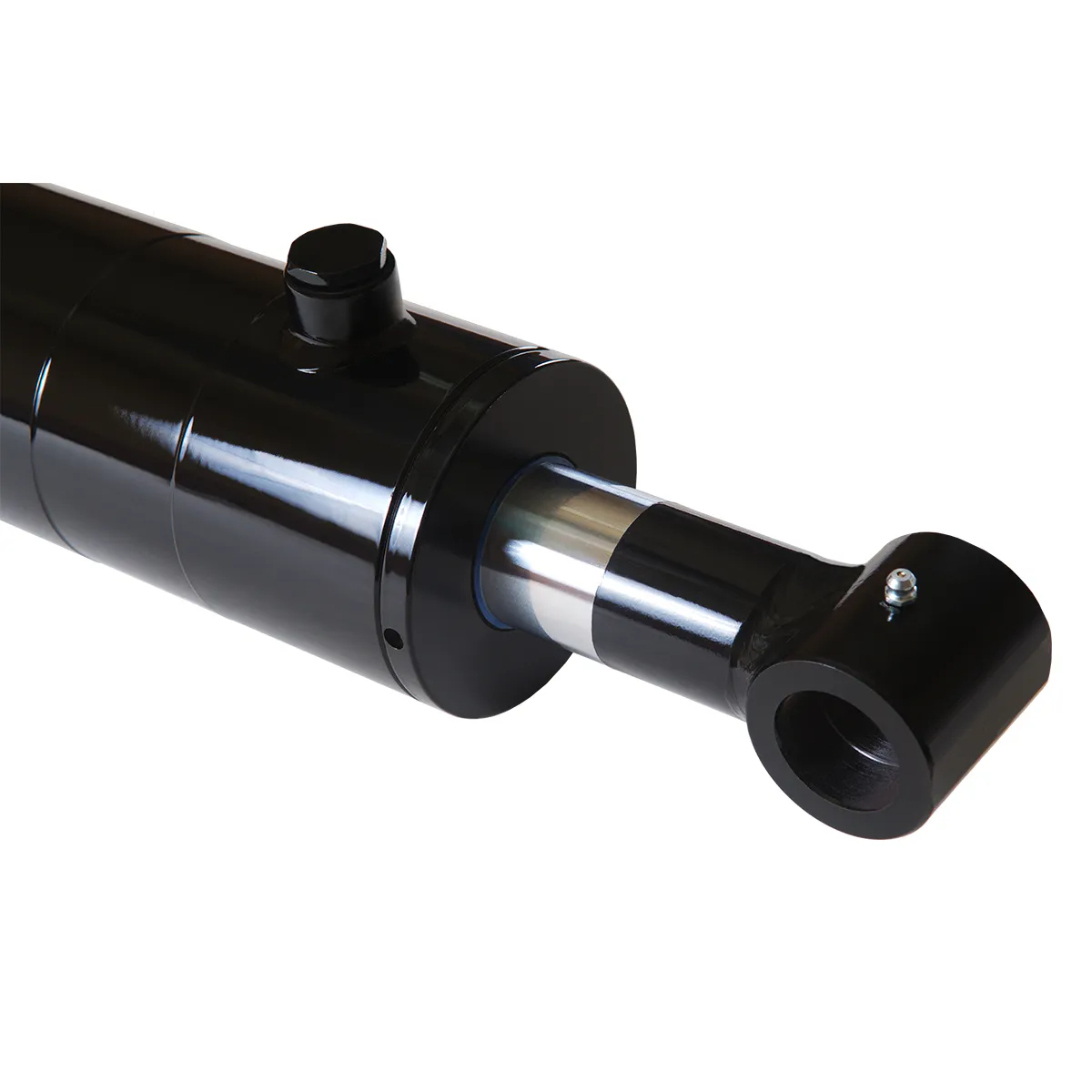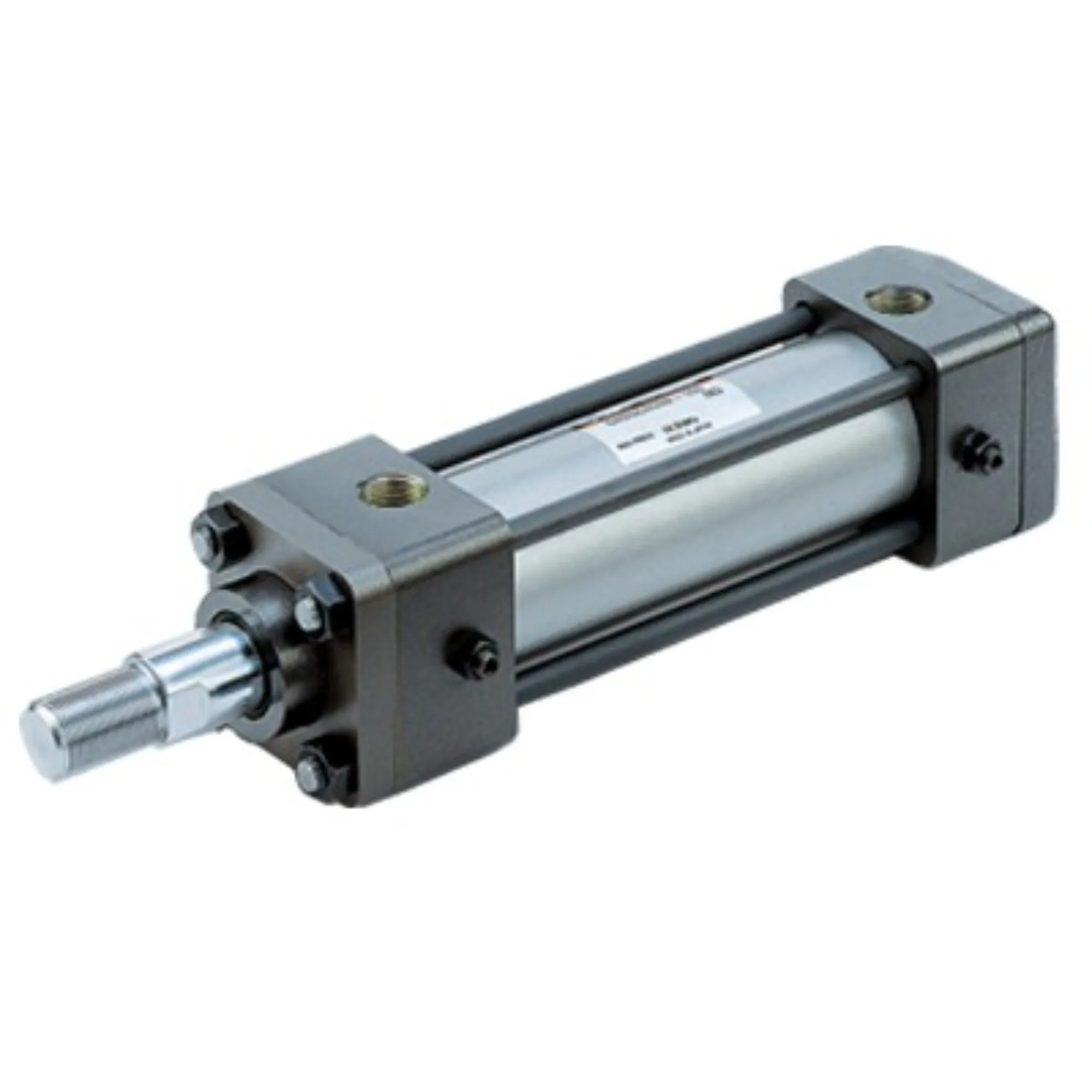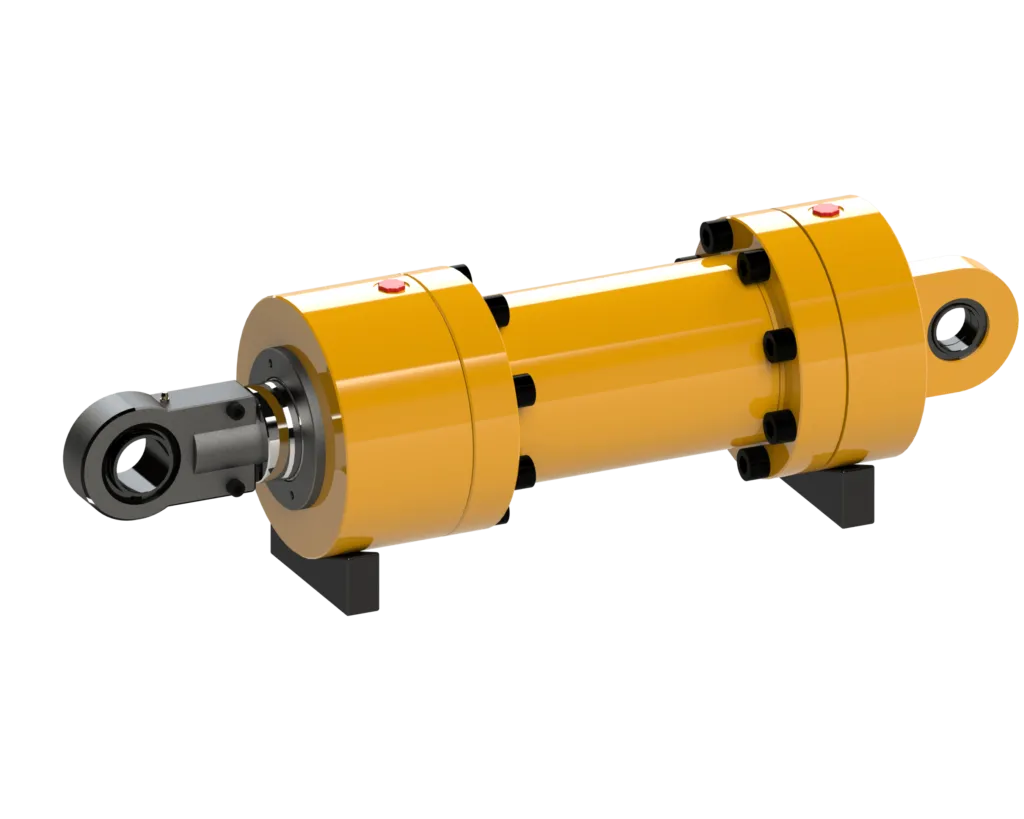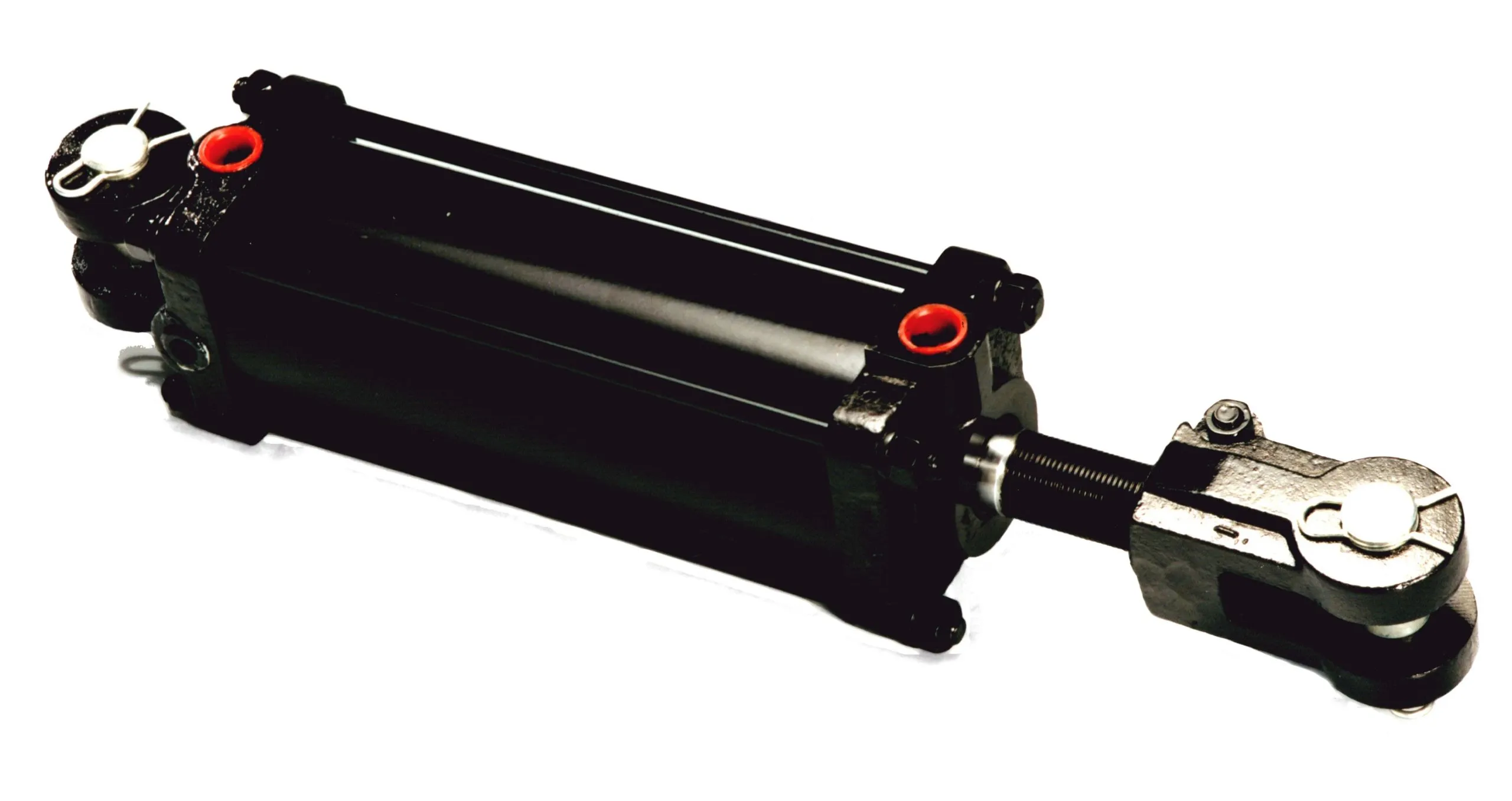Maintenance Tips for Double Rod Single Acting Hydraulic Cylinders
Hydraulic cylinders are crucial components in various machinery, providing the force needed to perform tasks ranging from lifting heavy loads to precise positioning. Double rod single acting hydraulic cylinders, in particular, offer unique advantages, such as balanced force and reduced wear. However, like any mechanical device, they require regular maintenance to ensure optimal performance and longevity. This article outlines essential maintenance tips for double rod single acting hydraulic cylinders, focusing on preventive measures, troubleshooting, and best practices.
Understanding Double Rod Single Acting Hydraulic Cylinders
Before diving into maintenance tips, it’s essential to understand what double rod single acting hydraulic cylinders are. Unlike standard single rod cylinders, double rod cylinders have rods extending from both ends of the cylinder. This design allows for more balanced forces and makes them ideal for applications where equal movement in both directions is necessary.
Importance of Regular Maintenance
Regular maintenance is vital for hydraulic cylinders for several reasons:
– Prevention of Failures: Routine checks can catch potential issues before they lead to catastrophic failure.
– Increased Efficiency: Well-maintained cylinders operate more smoothly, which can enhance the overall efficiency of the machinery they are part of.
– Extended Lifespan: Regular maintenance can significantly extend the lifespan of the hydraulic cylinder, reducing the need for costly replacements.
– Safety: Malfunctioning hydraulic systems can pose safety hazards. Regular maintenance helps ensure safe operation.
Essential Maintenance Tips
Maintaining double rod single acting hydraulic cylinders involves several key practices. Below are essential tips to keep your hydraulic cylinders in optimal condition.
1. Regular Inspection
Routine inspections are the first line of defense in maintaining hydraulic cylinders. Check the following:
– Visual Checks: Look for signs of wear, leaks, or damage. Pay attention to seals and connections, as these areas are prone to wear.
– Operational Checks: Observe the cylinder during operation. Listen for unusual sounds, and check for smooth movement. Any jerking or stalling can indicate internal issues.
– Fluid Levels: Ensure that the hydraulic fluid is at the appropriate level. Low fluid levels can lead to overheating and malfunction.

2. Lubrication
Proper lubrication is crucial for preventing friction and wear in hydraulic cylinders. Follow these guidelines:
– Use the Right Lubricant: Make sure to use a lubricant that is compatible with the hydraulic fluid used in your system.
– Regular Application: Create a lubrication schedule based on the manufacturer’s recommendations and the frequency of use.
– Avoid Over-Lubrication: Too much lubricant can attract dirt and debris, leading to increased wear.
3. Seals Maintenance
Seals are critical in preventing leaks and maintaining pressure within hydraulic cylinders. Here’s how to care for them:
– Inspect Seals Periodically: Check for wear or damage. Cracked or worn seals can lead to fluid leakage and reduced efficiency.
– Clean Around Seals: Dirt and debris can cause seals to wear out faster. Clean the area around the seals regularly to prevent contamination.
– Replace Worn Seals Promptly: If a seal shows signs of damage, replace it immediately to maintain cylinder performance.
4. Cleanliness is Key
Keeping the hydraulic system clean is essential for its longevity. Implement these cleanliness practices:
– Avoid Contaminants: Ensure that the hydraulic fluid is free from contaminants like dirt, water, and air. These can lead to corrosion and mechanical failure.
– Use Filters: Installing filters can help trap contaminants before they enter the hydraulic system. Regularly check and replace filters as needed.
– Clean Work Areas: Ensure that the working environment around the hydraulic system is clean to prevent dirt from entering the system during maintenance.
5. Monitor Temperature
Hydraulic systems can generate significant heat during operation. Monitoring temperature is crucial:
– Check for Overheating: Excessive heat can lead to fluid breakdown and component failure. Monitor the temperature regularly.
– Use Cooling Systems: If overheating is a consistent issue, consider installing additional cooling systems to maintain optimal operating temperatures.
– Maintain Fluid Quality: High temperatures can degrade hydraulic fluid. Ensure that fluid is changed according to the manufacturer’s recommendations to maintain its effectiveness.
6. Testing and Calibration
Regular testing and calibration ensure that hydraulic cylinders are functioning correctly:
– Pressure Testing: Conduct pressure tests to ensure the cylinder can handle the required operational pressures without leaking.
– Calibrate for Accuracy: Ensure that the cylinder operates within specified parameters. Regular calibration ensures that the cylinder performs as intended.
– Record Keeping: Keep detailed records of all tests and maintenance activities. This documentation can help identify patterns and potential issues over time.
7. Educate Your Team
A knowledgeable team is essential for effective maintenance:
– Training Sessions: Conduct regular training sessions to educate staff on proper maintenance practices and the importance of hydraulic systems.
– Safety Protocols: Ensure that all team members are aware of safety protocols when working with hydraulic systems.
– Encourage Reporting: Create an environment where team members feel comfortable reporting issues or concerns regarding the hydraulic system.
Troubleshooting Common Issues
Despite regular maintenance, issues can still arise. Here’s how to troubleshoot common problems with double rod single acting hydraulic cylinders:
1. Cylinder Leaks
Leaks are a common issue in hydraulic systems. If you notice leaks:
– Check Seals: Inspect seals for wear or damage. Replace if necessary.
– Tighten Connections: Ensure all fittings and connections are tight. Loose connections can lead to leaks.

– Inspect for Cracks: Examine the cylinder body for cracks or damage that may cause leaks.

2. Slow Operation
If the hydraulic cylinder operates slowly, consider these factors:
– Fluid Level: Check if the hydraulic fluid is at the correct level. Low fluid can lead to sluggish operation.

– Contamination: Inspect the fluid for contaminants. Change the fluid if necessary.
– Air in the System: Bleed the system to remove any trapped air that may affect performance.
3. Unusual Noises
Strange noises during operation can indicate problems:
– Check for Mechanical Issues: Inspect for any loose or damaged components.
– Evaluate Lubrication: Ensure that proper lubrication is maintained to prevent excessive friction.
– Inspect for Cavitation: Cavitation can cause unusual noises; check for low fluid levels or fast-moving fluid that may lead to vapor pockets.
Best Practices for Long-Term Maintenance
To ensure the long-term performance of double rod single acting hydraulic cylinders, implement these best practices:
– Schedule Regular Maintenance: Establish a routine maintenance schedule to ensure consistent checks and upkeep.
– Use Quality Components: When replacing parts, always use high-quality components that meet or exceed manufacturer specifications.
– Stay Updated: Keep abreast of any advancements in hydraulic technology that may improve maintenance practices.
Conclusion
Maintaining double rod single acting hydraulic cylinders is essential for optimal performance, safety, and longevity. By following these maintenance tips, conducting regular inspections, and addressing issues promptly, you can ensure that your hydraulic systems operate efficiently. Remember, a proactive approach to maintenance is always the best strategy.
For those looking to enhance their hydraulic systems further, consider EVER-POWER’s range of high-quality hydraulic cylinders and components. Their products are engineered for durability and performance, making them an excellent choice for maintaining your hydraulic systems effectively. Invest in quality with EVER-POWER and ensure your machinery operates at its best.
